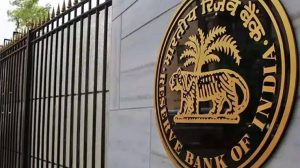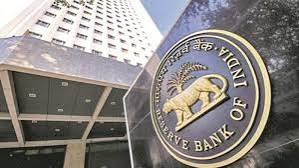Digital News Guru Business Desk:
RBI Sets Up Ethical AI Panel for Financial Sector
The Reserve Bank of India (RBI) has taken a significant step towards ensuring the responsible and ethical use of artificial intelligence (AI) in the financial sector by establishing an eight-member committee named the Framework for Responsible and Ethical Enablement of AI (FREE-AI). This initiative underscores the central bank’s commitment to balancing technological innovation with robust governance and risk management.

Composition of the FREE-AI Committee
The committee is chaired by Professor Pushpak Bhattacharyya from the Department of Computer Science and Engineering at the Indian Institute of Technology (IIT) Bombay. The panel comprises experts from various sectors, including academia, industry, and government, bringing a diverse range of perspectives to the table. The members are:
- Debjani Ghosh: Independent Director, Reserve Bank Innovation Hub.
- Balaraman Ravindran: Professor and Head, Wadhwani School of Data Science and AI, IIT Madras.
- Abhishek Singh: Additional Secretary, Ministry of Electronics and Information Technology.
- Rahul Matthan: Partner, Trilegal.
- Anjani Rathor: Group Head and Chief Digital Experience Officer, HDFC Bank.
- Sree Hari Nagaralu: Head of Security AI Research, Microsoft India.
- Suvendu Pati: Chief General Manager, FinTech Department, RBI.
Mandate and Objectives
The FREE-AI committee has been entrusted with several critical tasks aimed at fostering the ethical adoption of AI in India’s financial sector:
- Assessment of AI Adoption: Evaluating the current level of AI integration in financial services, both globally and within India, to understand the landscape and identify best practices.
- Regulatory Review: Analyzing international regulatory and supervisory approaches concerning AI, with a focus on the financial sector, to inform the development of a robust framework.
- Risk Identification: Identifying potential risks associated with AI deployment, including issues related to bias, cybersecurity threats, and systemic vulnerabilities, to ensure comprehensive risk management.
- Framework Development: Recommending evaluation, mitigation, and monitoring strategies for AI-related risks, and establishing compliance requirements for financial institutions such as banks, non-banking financial companies (NBFCs), fintech firms, and payment system operators (PSOs).
- Governance Guidelines: Proposing governance standards to ensure the responsible and ethical adoption of AI applications within the Indian financial sector, promoting transparency and accountability.
Timeline
The committee is expected to submit its report within six months from the date of its first meeting, providing a timely roadmap for the ethical integration of AI in the financial industry.

Significance of the Initiative
The establishment of the FREE-AI committee reflects the RBI’s proactive approach to navigating the complexities introduced by AI technologies in finance. As AI becomes increasingly integral to financial services—enhancing customer experiences, improving decision-making, and streamlining operations—the need for a structured framework to address ethical considerations and potential risks has become paramount.
By focusing on responsible AI adoption, the RBI aims to:
- Promote Trust: Ensuring that AI systems are designed and implemented transparently to build trust among consumers and stakeholders.
- Mitigate Risks: Addressing challenges such as data privacy concerns, algorithmic biases, and cybersecurity threats to maintain the integrity of the financial system.
- Encourage Innovation: Providing clear guidelines that enable financial institutions to innovate with AI technologies while adhering to ethical standards.
- Align with Global Standards: Harmonizing India’s AI regulatory framework with international best practices to enhance the country’s competitiveness in the global financial landscape.
Global Context
Globally, regulatory bodies are increasingly focusing on the ethical implications of AI in finance. The European Union, for instance, has proposed the Artificial Intelligence Act, aiming to establish a legal framework for AI that ensures safety and fundamental rights while fostering innovation. Similarly, the United States has initiated discussions on AI governance, emphasizing the need for ethical guidelines and risk management.
The RBI’s initiative positions India alongside these global efforts, demonstrating a commitment to responsible AI integration that safeguards public interest and promotes sustainable development.
Industry Implications
For financial institutions in India, the formation of the FREE-AI committee signals an impending shift towards more regulated AI practices. Banks, NBFCs, fintech companies, and PSOs will need to:
- Evaluate Current AI Systems: Assess existing AI applications to ensure they comply with forthcoming ethical guidelines and standards.
- Implement Robust Governance: Establish internal governance structures to oversee AI development and deployment, ensuring accountability and ethical compliance.
- Engage in Continuous Monitoring: Develop mechanisms for the ongoing monitoring and evaluation of AI systems to detect and mitigate risks promptly.
- Invest in Training: Upskill employees to understand the ethical dimensions of AI and to manage AI systems effectively within the regulatory framework.

Conclusion
The RBI’s establishment of the FREE-AI committee marks a pivotal moment in the evolution of India’s financial sector. By proactively addressing the ethical and governance challenges associated with AI, the RBI is laying the foundation for a financial ecosystem that leverages technological advancements while safeguarding the interests of all stakeholders. As the committee progresses in its mandate, its recommendations are anticipated to play a crucial role in shaping the future of AI in Indian finance, ensuring that innovation and ethics advance hand in hand.
You May Also Read: Dr. Manmohan Singh’s Journey: From Economist to Prime Minister








